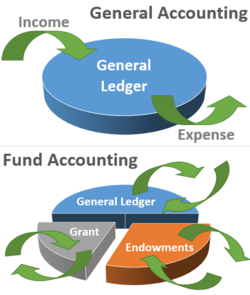ROI of an Online Business Degree: Time, Cost, and Outcomes
In today's competitive job market, pursuing an online business degree can be a strategic move for career advancement. However, many prospective students often wonder about the ROI of an online business degree in terms of time, cost, and the potential outcomes upon graduation. Understanding these factors can help individuals make informed decisions about their education and career paths.
Understanding the Cost of an Online Business Degree
The cost of an online business degree can vary widely depending on the institution, program length, and additional fees. Generally, tuition for online programs tends to be lower than traditional on-campus programs, making them an attractive option for many students.
Here’s a breakdown of typical costs associated with an online business degree:
| Expense | Estimated Cost |
|---|---|
| Tuition (per year) | $10,000 - $30,000 |
| Books and Supplies | $1,000 - $2,000 |
| Technology Fees | $500 - $1,000 |
| Miscellaneous Fees | $500 - $1,000 |
Many online programs offer financial aid and scholarships, which can significantly reduce these costs. It’s essential to explore all available options to ensure you can maximize your investment in an online business degree.
Time Investment for an Online Business Degree
Time is another critical factor when considering the ROI of an online business degree. Most online programs are designed to be flexible, allowing students to balance their studies with work and personal commitments. Typically, an online business degree can take anywhere from two to four years to complete, depending on whether you’re pursuing an associate, bachelor’s, or master’s degree.
For example, a bachelor’s degree generally requires around 120 credit hours, while a master’s degree usually demands about 30-60 credit hours beyond the bachelor’s level. Here’s a typical timeline for each degree:
| Degree Type | Average Duration |
|---|---|
| Associate Degree | 2 years |
| Bachelor's Degree | 4 years |
| Master's Degree | 1-2 years |
While the time commitment can seem daunting, many online programs offer accelerated options that allow students to finish their degrees more quickly. Time management skills and self-discipline are critical for success in these programs.
Potential Outcomes of an Online Business Degree
One of the most significant aspects of evaluating the ROI of an online business degree is considering the potential outcomes after graduation. Graduates often experience increased earning potential and improved job prospects.
According to recent studies, individuals with a bachelor's degree in business earn approximately 57% more than those with only a high school diploma. Additionally, a master's degree in business administration (MBA) can lead to even higher salaries and greater career advancement opportunities.
Here are some key outcomes associated with obtaining an online business degree:
| Outcome | Potential Benefit |
|---|---|
| Increased Earning Potential | Higher salaries compared to non-degree holders |
| Career Advancement | Opportunities for promotions and leadership roles |
| Networking Opportunities | Connections with industry professionals and alumni |
| Skill Development | Acquisition of valuable skills in management, marketing, and finance |
Moreover, many employers value the flexibility and self-motivation required to complete an online business degree, viewing these traits as assets in potential employees.
Analyzing the ROI
To assess the ROI of an online business degree, it’s crucial to weigh the costs against the potential benefits. While the initial investment may seem significant, the long-term benefits, including increased earning potential and career advancement opportunities, can often justify the expense.
Consider the following factors when evaluating your potential ROI:
- Your current job situation and income level
- Projected salary increases post-graduation
- The demand for business professionals in your desired field
- Long-term career goals and aspirations
By carefully analyzing these elements, you can gain a clearer understanding of the overall return you may expect from investing in an online business degree.
Conclusion
In summary, the ROI of an online business degree encompasses various factors, including time, cost, and potential outcomes. By understanding these components, you can make an informed decision about whether pursuing an online business degree aligns with your career goals and financial situation. With the right preparation and commitment, an online business degree can be a valuable investment in your future.
Explore

Is It Time to Replace Your Roof? 7 Signs to Watch For
Unlocking Success: How Call Answering Services Enhance Customer Experience and Boost Business Growth

Top Online Therapy Platforms for Depression Support

How to Choose the Best Online Supplement Store: A Shopper’s Guide

Top Online Advertising Strategies for Small Businesses in 2025

Online Fund Accounting Programs: Flexibility for Busy Learners

Top HBS Online Courses for Career Growth in 2025

Online MHA Programs That Fit Your Busy Schedule
